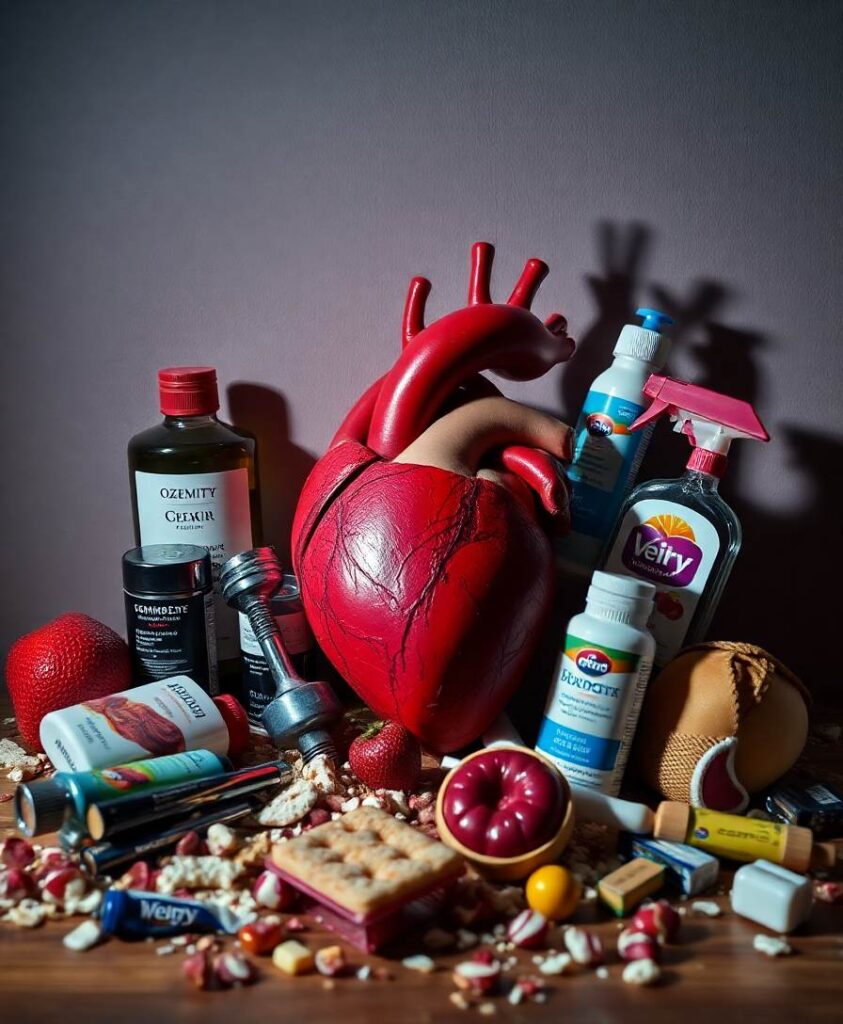When I think about the journey of teen bodies, I imagine the subtle shifts happening beneath the skin — the way a chest rises and falls with breath, the way muscles tense and relax during a game or dance. It’s a time of rapid change, sometimes confusing, sometimes unsettling, especially when concerns about weight come into play. If you’ve ever felt that tug of worry about a loved one’s health, you’re not alone.
Lately, I’ve been hearing more about a new trend among teens and their families — the rising use of Wegovy, a medication originally designed for adults with obesity. Reports show that the number of teens starting Wegovy treatment has increased by 50 percent in the U.S., signaling a shift in how we approach youth health and weight management. This isn’t just about medication; it’s about the quiet, complex story of body awareness, medical trust, and the desire for well-being at a vulnerable age.
Understanding teen weight management and the role of medication
For many families, navigating weight concerns in adolescence can feel like walking on a tightrope. On one side, there’s the hope of a healthier future; on the other, worries about the risks, the stigma, and whether medical intervention is the right choice. When doctors gain confidence in prescribing Wegovy for teens, it signals a broader shift: an acknowledgment that obesity in youth requires thoughtful, effective responses.
But what does it mean for a teen’s body to be on medication designed to suppress appetite and promote weight loss? And how might it feel to live with that change? These questions aren’t just about physical health; they touch on identity, self-esteem, and the body’s evolving signals.
If you’re a parent, teen, or caregiver, you might ask yourself: Is this the right support? How does it feel to consider medication as part of a health plan? These feelings are natural — and they underscore the importance of compassionate, personalized care that respects a young person’s autonomy and emotional landscape.
What does increased Wegovy use tell us about trust in medical science?
The rise in Wegovy’s use among teens reflects a growing confidence — from families, doctors, and communities — that this medication can be a safe, effective part of managing obesity. It’s a sign that more people are seeking solutions that go beyond diet and exercise alone, especially when these traditional approaches haven’t achieved the desired results.
However, it also invites us to think about the delicate balance between medical intervention and natural growth. Teenagers are not just smaller adults; their bodies are still developing, and their relationship with food and self-image is often fragile. As we see more teens using Wegovy, it’s vital to remember that each young person’s experience is unique. The decision to start such medication isn’t taken lightly — it’s a step toward health that involves careful medical guidance and emotional support.
If you’re exploring options for a teen struggling with weight, it’s helpful to understand that confidence in these medications is growing because of rigorous research and shared success stories. Yet, it’s equally important to stay attentive to how a young person feels about their body and their health journey.
Supporting teens through their weight loss journey with empathy and awareness
When a teen begins using Wegovy, it’s more than just a medical decision — it’s a moment that can impact their self-perception and confidence. As caregivers, educators, or friends, the most important thing we can do is listen with empathy. Ask about their feelings, fears, and hopes. Celebrate small victories, and acknowledge that setbacks are part of growth.

The body’s signals during adolescence are complex. Appetite, energy levels, mood — all are interconnected. Using medication like Wegovy can help some teens find a healthier balance, but it’s essential that this process is accompanied by emotional support and education about body awareness.
If you notice a teen feeling overwhelmed or disconnected from their body during this process, it’s worth encouraging open dialogue with healthcare providers, counselors, or trusted adults. The goal is to foster a sense of agency and compassion, ensuring the journey towards health is also a journey towards self-acceptance.
Watching a young person’s body change can be a powerful experience — both for them and for those who care about them. As medical science advances and more families consider Wegovy as part of their toolkit, our role remains to support with kindness, understanding, and respect for the unique path each teen walks.
Learn More: Wegovy Use Up 50 Percent Among US Teens
Abstract: American teens are increasingly turning to the weight-loss drug Wegovy as more families and their doctors gain confidence in its use for young people with obesity, new data shared with Reuters shows. The average rate of teens beginning treatment with the highly effective…
Link: Read Full Article (External Site)




